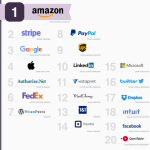Search Disruptions: How Brands Will Compete With Google, Facebook In 2018
Search Disruptions: How Brands Will Compete With Google, Facebook In 2018
by Laurie Sullivan , Staff Writer @lauriesullivan, December 26, 2017
Brands are concerned about how much artificial intelligence and machine learning they should use when buying media and creating campaign strategies.
Massive changes in search advertising and marketing will move the industry forward after years of inertia. Thank technology and smart engineers at companies like Google and Microsoft, as well as advertising agencies like Merkle, a Dentsu company. Still, users may not like all the changes they design. Some will continue to erode privacy by creating massive digital footprints.
Matt Mierzejewski, senior search president, search capability lead at Merkle, thinks research advances prove the agency’s ability to provide brands new possibilities through technology. By 2020, the agency believes about 30% of queries will be voice-driven.

Voice search will become even bigger in 2018, along with other challenges.
Search Insider
spoke with Mierzejewski and colleague Coleen Kuehn, Chief Media Officer at Merkle, about future challenges.
Search Insider: What changes do you expect to see in 2018?
Coleen Kuehn:
Being fast isn’t good enough. Brands will need to be first. Your tone must be authoritative. Search is a trusted resource for consumers, but people look for fast and trustworthy information. On a voice search device like Google Home or Amazon Echo [without a screen], only one result is returned when you do a voice search. There’s not an entire page of results. You don’t have a second or third ranking.
Matt Mierzejewski:
Marketers need to sharpen the pencil. Marketers will use some of the same platform to give consumers a response to their search query. The input will change. Consumers will use voice more often. By 2020, about 30% of queries will be voice-driven, according to Merkle. You will be in your car, rather than on a desktop or mobile device, for example.
The optimization for marketers are much the same, you’re creating quality content, but you need to focus on those areas in which you want to be the authoritative source.
Google, I believe, is putting a lot of energy into creating an experience with rich snippets for brands to have that authoritative voice directly in the response, as opposed to taking the site visitor to another location, asking them to hunt for that information.
Machine-learning expectations will rise. We see Google pushing and promoting their [artificial intelligence] products. Agencies will develop velocity in the technology, while advertisers will invest to prove they have these capabilities.
Search Insider:
What keeps you up at night?
Mierzejewski:
Disruption. Do a search for “solar panels” on Google. You see a savings estimator. Here’s an example of disruption in a specific vertical, similar to rich snippets, in which Google is seeking to provide the answer to the consumer within their own platform. This is a search engine results page widget they created. If you enter your address, it will provide an estimated savings and a list of local contractors. We have a client that engages us for organic discoverability in this industry — their traffic fell 50% overnight.
This is a challenge and massive disruption caused by the platform, Google. As Google moves toward machine leaning and providing the answer to users, will they move in on other industries? During the past few years for product listing ads in retail, we’ve seen a Google Express product where they can promote products and services directly.
They’ve also entered into the credit-card space a bit and pulled out. It’s something we’re keeping a watch on.
SI:
Are brands or retailers losing control?
Mierzejewski:
They are losing organic clicks to their websites, where they can follow the traffic from their site to local providers, as in the example of the solar company. Google’s tool directly promotes a variety of other local suppliers. The strategy is to lean in on their tools to create their brand as one of the major offerings through Google’s widget.
SI:
What is another way to teach brands to recoup lost revenue?
Kuehn:
It’s more interesting to be a marketer. In the past, you would develop a strategy and develop a playbook, but when challenges are introduced, you need to rewrite the platform. We are rewriting the book and providing complimentary strategies to address the loss and grow a different part of the pie.
MediaPost.com: Search Marketing Daily
(28)











